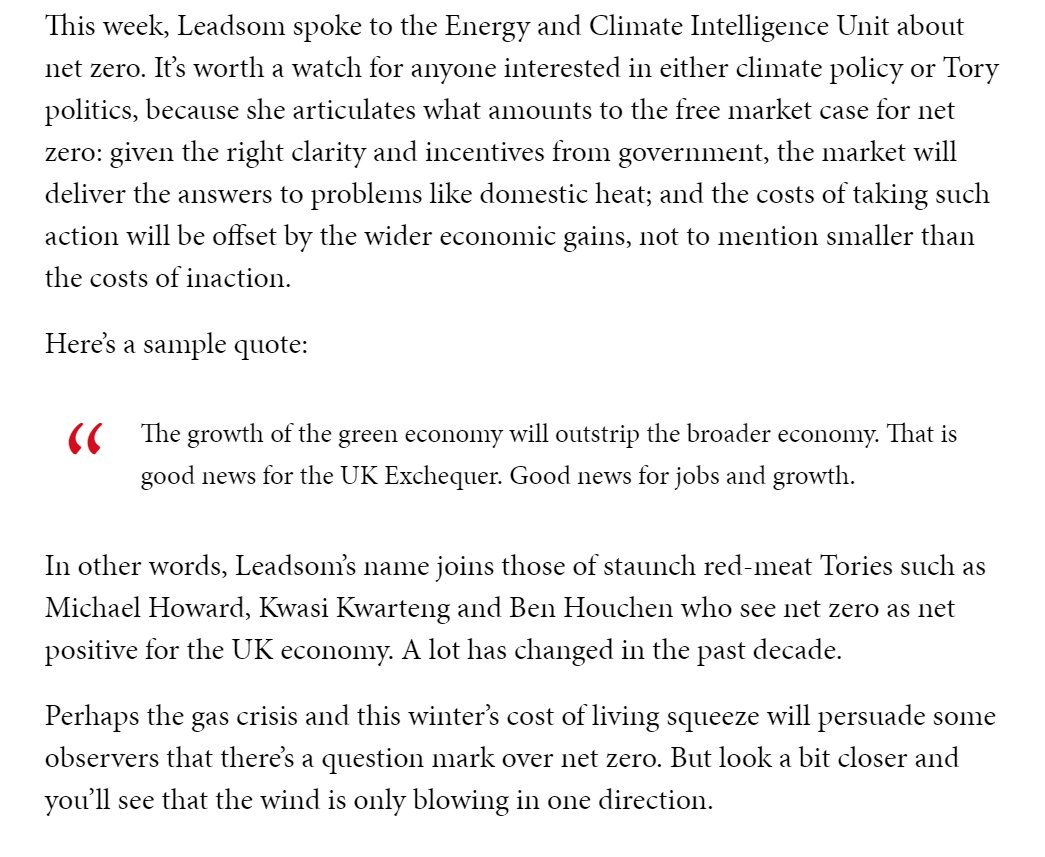
The Times wants you to believe that the story here is a spiv, not a form of politics that created the opportunities for armies of spivs -- a form of politics that The Times has supported.
https://twitter.com/thetimes/status/1441303689222819840
Although *I* should have been watching more closely (although I was not working in the field at the time), the first I realised of this was when I switched to a new energy retailer. I got a good deal and though no more of it until they started doubling my monthly DD payments.
My account was significantly in credit -- £hundreds. But the retailer (Toto) refused to refund or reduce the payments. They said it was because I had missed a payment, and that the fact that I was in credit made no difference.
Then it was obvious: they were offering new customers artificially low prices to get new business, and ripping off existing customers to cover the loss and grow the business. I demanded the money back, and they said it would take months.
So I reclaimed all the DDs through my bank, declared the contract voided, and complained to the (useless, toothless) @ofgem & got a ~£100 credit and a promise of an apology, which did not arrive, so I continued to withhold payment. They tried to reinstate the DD without consent.
Then Toto went bust because their reputation was so terrible.
It was *policy* that created this problem. Politicians believed that they could break the "Big 6" monopoly with "competition", and achieve lower prices.
But it was policy that was driving generators down & prices up.
It was *policy* that created this problem. Politicians believed that they could break the "Big 6" monopoly with "competition", and achieve lower prices.
But it was policy that was driving generators down & prices up.
Politicians with responsibility for energy & climate policy have been MUCH more keen on destroying capacity than building new generators.
https://twitter.com/AlokSharma_RDG/status/1429458197597888516
Even this week, @AlokSharma_RDG has been virtue-signalling his anti-coal credentials rather than addressing the fact of the energy crisis.
https://twitter.com/AlokSharma_RDG/status/1440412618158600200
And it is @andrealeadsom who let the cat out of the bag: government has had no idea how to achieve the targets it had set. She and her colleagues had left it to businesses to work out how to deliver the POLITICAL agenda.
Where are the solutions?
We can see £10bn a year going to green energy spivs.
We can see a constellation of dodgy energy retailers, many of which are going to go bust.
We can see energy shortages and price rises.
But no solutions.
#NetZero has failed at the first hurdle.
We can see £10bn a year going to green energy spivs.
We can see a constellation of dodgy energy retailers, many of which are going to go bust.
We can see energy shortages and price rises.
But no solutions.
#NetZero has failed at the first hurdle.
• • •
Missing some Tweet in this thread? You can try to
force a refresh





